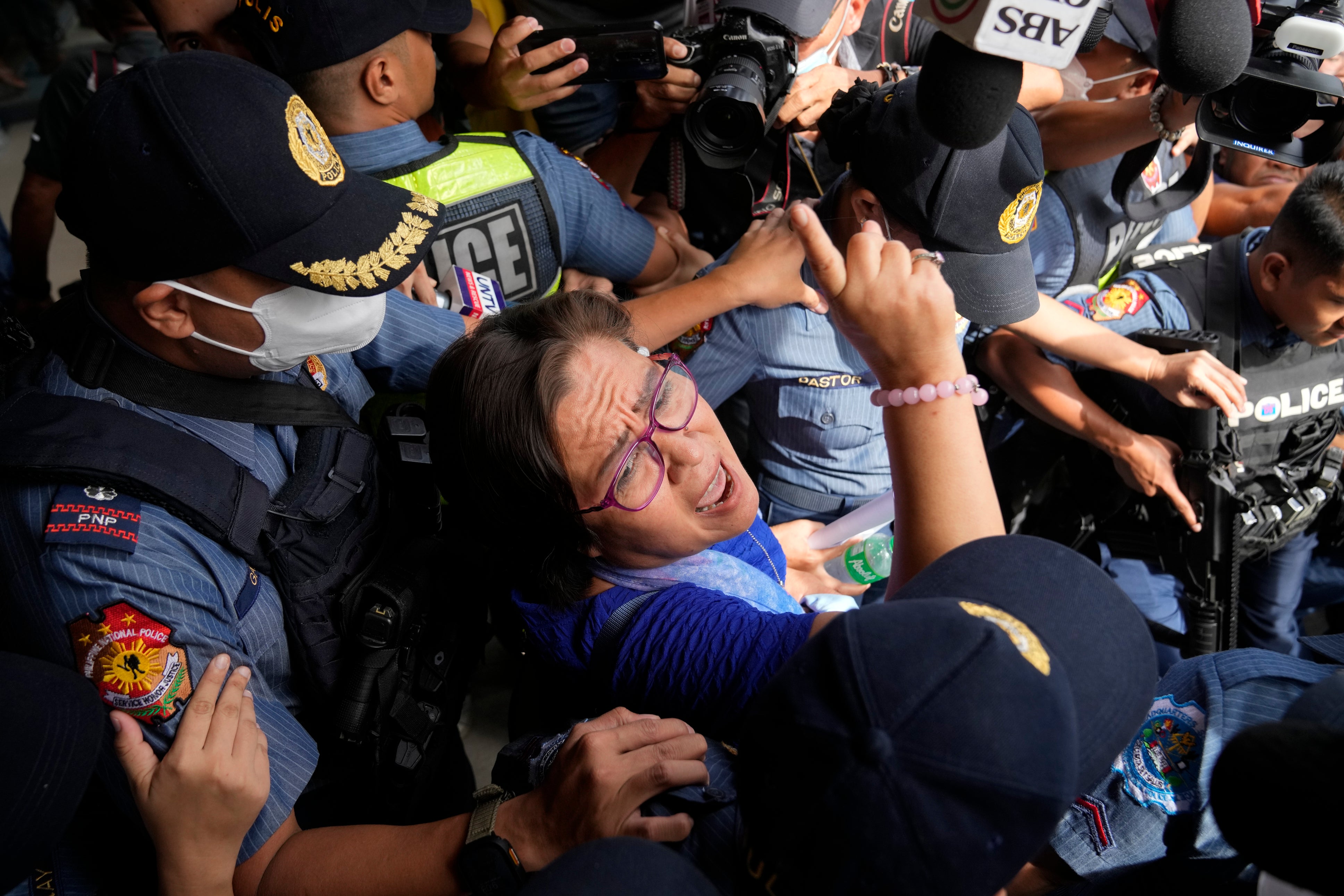Philippine court rejects bail request by former opposition senator who opposed deadly drug campaign
A Philippine court has rejected a request for bail by a former opposition senator and justice secretary who criticized then-President Rodrigo Duterte’s deadly crackdown on illegal drugs and instead was accused by his administration of drug dealing and was jailed more than six years ago

Your support helps us to tell the story
From reproductive rights to climate change to Big Tech, The Independent is on the ground when the story is developing. Whether it's investigating the financials of Elon Musk's pro-Trump PAC or producing our latest documentary, 'The A Word', which shines a light on the American women fighting for reproductive rights, we know how important it is to parse out the facts from the messaging.
At such a critical moment in US history, we need reporters on the ground. Your donation allows us to keep sending journalists to speak to both sides of the story.
The Independent is trusted by Americans across the entire political spectrum. And unlike many other quality news outlets, we choose not to lock Americans out of our reporting and analysis with paywalls. We believe quality journalism should be available to everyone, paid for by those who can afford it.
Your support makes all the difference.A Philippine court rejected on Wednesday a request for bail by a former opposition senator and justice secretary who criticized then-President Rodrigo Duterte’s deadly crackdown on illegal drugs and instead was accused by his administration of drug dealing and was jailed more than six years ago.
U.S. and European legislators have demanded the release of former Sen. Leila de Lima, 63, currently the Philippines' most prominent prisoner, especially after she was taken hostage last year by three Muslim militants in their failed attempt to escape from prison.
Manila Regional Trial Court Presiding Judge Romeo Buenaventura rejected de Lima’s argument in her request for bail that prosecutors failed to prove that she conspired with codefendants and received payoffs from drug dealing in the national penitentiary when she served as justice secretary and wielded control over the country's prisons.
"This court is convinced that there is great probability that the crime charged has been committed and that the accused are the agents thereof,” Buenaventura said in his ruling.
The hostage-taking of de Lima in a detention center in the main camp of the Philippine National Police was “an isolated occurrence,” the court said.
The opposition leader also cited her poor health in her request for bail. The court said she could always ask the court for a furlough to seek medical treatment.
De Lima has been detained since 2017 on drug charges she says were fabricated by Duterte and his officials to stop her from pursuing a Senate investigation into allegations of widespread extrajudicial killings under his campaign against illegal drugs, which left thousands of mostly poor suspects dead when he was mayor of southern Davao city and president starting in 2016.
There had been expectations that de Lima could be freed on bail under Duterte’s successor, President Ferdinand Marcos Jr., after she was cleared in two other drug-related cases after a number of witnesses recanted their allegations against her.
De Lima’s lawyers said they would appeal the decision and criticized the prosecutor’s use of testimony from criminals against her.
“We’re hoping that in our motion for reconsideration, the court will appreciate our position that the testimonies of convicted criminals will never be acceptable or could be trusted,” they said in a statement.
Human Rights Watch said the court decision “prolongs the injustice committed against her since more than six years ago."
"This flies in the face of her previous court acquittal in two cases which clearly showed the political nature of her persecution,” Carlos Conde of HRW said in a statement.
The drug killings under Duterte sparked an International Criminal Court investigation as a possible crime against humanity. His turbulent six-year term ended in June 2016 and he was succeeded by Marcos, whose running mate, Duterte’s daughter, won the vice presidency.